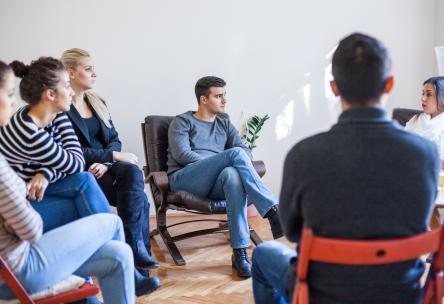Surprising insights from Gail Gibson Hunt, president and CEO of the National Alliance for Caregiving and a national expert on family caregiving

Q. What should I know before caring for a loved one in our home?
A. Figure out why you’re doing it and if it is the best thing for everyone involved. When we conducted the Caregiving in the U.S. survey, we found that one of the factors that increases stress on caregivers is living together. For example, maybe the care recipient doesn’t want to move in. Or maybe you want to bring mom from Miami to live with you, but she’s got support there. An assisted living or independent living facility might be a better choice. It’s important that you don’t rush into this.
Q. What relationship factors should we consider?
A. You’re adding a whole new adult to a house that may have teenagers. How they all get along is really critical once the person has moved in. Your kids and parent may have a better relationship with each other than with you! You have to have an understanding that this is something that the whole family is going to try to work on together.
Q. What should I tell my employer?
A. It’s important to think about how you’re going to balance work with caregiving. Maybe your company offers a leave of absence or has a geriatric care manager who can help you figure out a plan. Go to your human resources department and ask what resources are available. Just be sure to ask for support. Even if you’re a professional with a high-level job, this is something entirely different.
Q. What should I think about in terms of finances?
A. First, you need to know the financial situation of the care recipient. Do they have trusts? Savings? Long-term care insurance? What’s their income besides Social Security? You need to be able to access some of that money to pay for things for them. A recent study found that it costs caregivers almost $7,000 a year out-of-pocket to care for a loved one—regardless of income level. You have to have a sit-down with the entire family and talk about what the care recipient needs and how it will be paid for.
Q. How do I know if assisted living is a good idea?
A. You don’t want this person to be isolated, but they’re probably not driving. Assisted living is something that can really help both the caregiver and the care recipient. It gives your loved one a way to connect with other older adults and have a good time, and you’ll know they are well taken care of. Get in touch with the Eldercare Locator (eldercare.gov), and they can help you find adult day cares in the area. You’ve got to be able to give yourself a break.